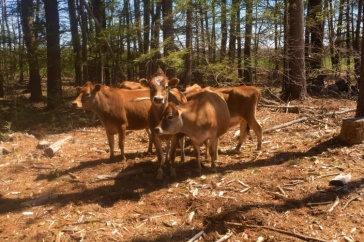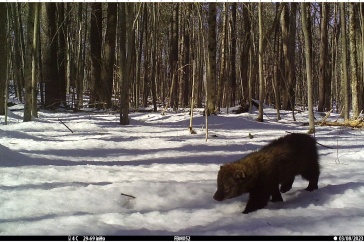
UNH will lead research as part of a $1.5 million award from the National Science Foundation to better understand how interactions between plants, microbes and soil minerals in permafrost, a subsurface layer of frozen soil covering a fourth of the Northern Hemisphere, stimulate the release of carbon, which adds to the warming Arctic.
“The Arctic is warming at a rate faster than anywhere else on Earth, resulting in changes to its ecosystems that may affect the entire global climate,” says Jessica Ernakovich, assistant professor of natural resources and environment and the lead principal investigator. “The overall goal of this research is to unravel the complex interactions and better understand how carbon stored in trapped organic matter, like roots and leaves, is released during a thaw and to help better project and mitigate long-term consequences.”
Researchers will focus specifically on factors in the Arctic ecosystem that control whether the carbon stays in the soil or ends up in the atmosphere and how it can alter everything from the landscape to greenhouse gases. The team will use state-of-the-science tools, such as microbial sequencing and stable isotope tracing to track carbon release in a live plant-permafrost system.
Other researchers on the team include Stuart Grandy, professor of natural resources and the environment, UNH; Will Wieder, project scientist, National Center for Atmospheric Research; and Caitlin E. Hicks Pries, assistant professor of biological sciences, Dartmouth College.
-
Written By:
Robbin Ray ’82 | UNH Marketing | robbin.ray@unh.edu | 603-862-4864
















































